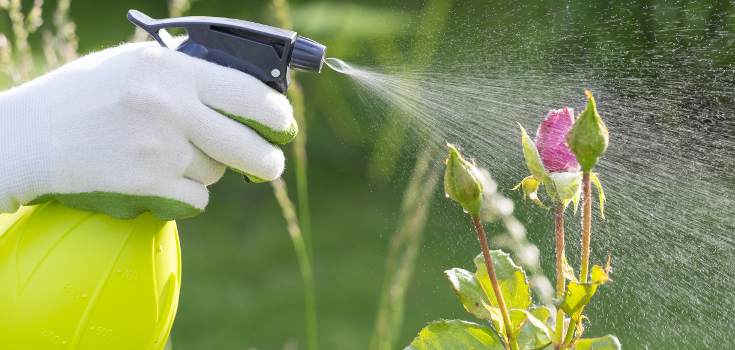New ‘Harmless Herbicide’ to Compete with Monsanto’s RoundUp
By Christina Sarich | Natural Society
A Non-Toxic Herbicide Alternative?

Why use carcinogenic herbicides to kill weeds when a little hot water will do the trick? Botanists and organic gardeners have known this effective, chemical-free way to treat weeds for hundreds of years. Now a UK based company has developed an innovative herbicide-free way to kill weeds utilizing this age-old wisdom.
Weeding Tech’s new products is said to kill weeds in 24 hours with no pesticides or herbicides. This is great news for the world considering that herbicide-resistant crop technology has led to a 239 million kilogram (527 million pound) increase in herbicide use in the United States between 1996 and 2011.
Saint Louis-based chemical Monsanto says it is in the ‘weed-killing’ business, but it is more likely in the ‘people-killing business’ with all the studies coming out on glyphosate’s toxic ramifications. RoundUp accounts for at least $7 billion in annual sales for Monsanto, so it is likely they won’t want to hear about a weed-killing product that is effective and harmless.
Using just hot-water and foam with a patented thermal technology, FoamStream has the following benefits:
- It visibly kills annual weeds within minutes
- It contains no harmful active ingredients and is not classified as a herbicide
- It is safe for unrestricted use in sensitive environments
- It can be applied in poor weather, avoiding costly delays for farmers
Related: Human Blood is Not ‘RoundUp Ready’
The product has already been trialed successfully in 12 different areas of the UK, and has won multiple awards. It has been proven to be effective at killing invasive species of weeds, without affecting the DNA of plants, inserting BT toxins into the environment, or posing the hazard of cross-pollinating organic crops, as GMO crops meant to withstand herbicides, do.
The Plant Protection Products (Sustainable Use) Regulations which started in the UK in 2012 inspired the recent market success of the product, but it has been in development since the 1990s.
As more individuals desire to reduce the use of traditional chemical herbicides, products like these can help to pave the way. I hope companies like these can give Monsanto and Big Biotech a run for their money.
(This article is not intended to promote the product mentioned, but rather is reporting on (hopefully) less toxic alternatives to what’s already on the market.)
